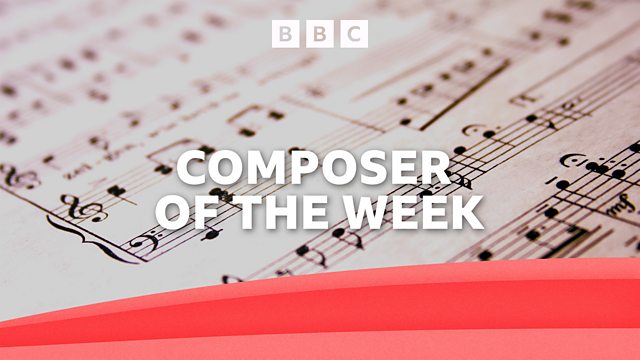
Royal Spectacle
Donald Macleod continues his focus on French composers, inspired by July's Tour de France. Today, we join Madame de Pompadour in her private theatre at Versailles.
Donald Macleod continues his focus on French composers, inspired by this monthâs âTour de Franceâ cycle race. Today Donald joins Mme de Pompadour in her private theatre at the Palace at Versailles.
"I have followed the theatre since the age of twelve", so said Rameau to a young composer who wrote to him for advice. It's an intriguing insight into a man who didn't produce his first opera until the age of fifty. Quite why it took him that long isn't clear. Up to that point he had been a church musician, following in his father's footsteps, holding a succession of posts mainly in the South of France. He also taught and established himself as a theoretician of some note. A brief, early sojourn in Paris, a mecca for any theatrical hopeful, ended abruptly when he was still in his twenties. It wasn't until he returned to Paris in 1723 that Rameau was able to start writing music for theatrical entertainments, at first for the popular Fairs, and then finally in 1733 for the Paris Opera. In the midst of constant cultural rows over the merits of French and Italian operatic style, Rameau flourished as a theatre composer. At one point he was so successful the management of the Paris Opera decreed no more than two of his works should be mounted per season, to allow other composers to get a look in! He completed his final opera, a masterpiece, Les Boréades in 1763, the year before he died at the age of eighty. Across the week Donald Macleod focuses on this remarkable period in Rameau's life, from the first of his theatrical works to his last.
Among the entertainments Rameau wrote for performance by the King's mistress and her circle of friends was his opera ballet Les Surprises d'Amour.
Les Surprises de lâAmour
Ouverture â le plus vite possible
Les Nouveaux Caractères
Sébastien dâHérin, direction
Les Surprises de lâAmour
Act 1, Sc 6 (The Abduction of Adonis)
Entrée: Le jour vient d'éclore
L'oiseau le plus tendre
Premier et deuxième airs â Vif
Magali Perol-Dumora, soprano, A Nymph
Les Nouveaux Caractères
Sébastien dâHerin, direction
Hippolyte et Aricie, Act 1, sc 1
Temple sacre, séjour tranquille
Véronique Gens, soprano, Aricie
Les Musiciens du Louvre
Marc Minkowski, director
Platée, Act 1, sc 5 and 6
Ariette Quittez, nymphes
Ãpais nuages
Tambourins
Ariette Soleil, fuis de ces lieux
Aria: les Aquilons viennent troubler
Orage
Marcel Beekman, tenor, Platée
Emmanuelle de Negri, soprano, Clarine
Cyril Auvity, tenor, Mercure
Arnold Schoenberg Choir
Les Arts Florissants
William Christie, director
Platée, Act 2, sc 2 to 4
Aria: Ã l'aspect de ce nuage
Tonnerre et pluie de feu - Recitative: Ciel! quelle terrible rosée!
Qu'elle est aimable
Edwin Crossley-Mercer, bass-baritone, Jupiter
Marcel Beekman, tenor, Platée
Cyril Auvity, tenor, Mercure
Marc Mauillon, baritone, Cithéron, roi de Grèce
Arnold Schoenberg Choir
Les Arts Florissants
William Christie, director
Le Temple de la Gloire, Act 3 Finale
Chaconne for the Roman men and women
Volez, Plaisirs, volez avec la Gloire
Dâun bonheur nouveau, goûtons tous les charmes
Air for the Roman men and women
Ces oiseaux, par leur doux ramage
Chantal Santon-Jeffery, soprano, Glory
Mathias Vidal, tenor, Trajan
Chamber Choir of Namur
Les Agrémens
Guy van Waas, conductor
Last on
Music Played
-
![]()
JeanâPhilippe Rameau
Les Surprises de l'Amour (Overture)
Ensemble: Les Nouveaux Caractères. Director: Sébastien dâHérin.- Glossa : GCD922701.
- Glossa.
-
![]()
JeanâPhilippe Rameau
Les Surprises de l'Amour (Act 1, Sc 6)
Singer: Magali Pérol-Dumora. Ensemble: Les Nouveaux Caractères. Director: Sébastien dâHérin.- Glossa : GCD922701.
- Glossa.
-
![]()
JeanâPhilippe Rameau
Hippolyte et Aricie (Act 1, Sc 1: excerpt)
Singer: Véronique Gens. Orchestra: Les Musiciens du Louvre. Conductor: Marc Minkowski.- DG Archiv : 4779393.
- DG Archiv.
-
![]()
JeanâPhilippe Rameau
Platee (Act 1: excerpt)
Singer: Marcel Beekman. Singer: Emmanuelle de Negri. Singer: Cyril Auvity. Choir: Arnold Shoenberg Choir. Ensemble: Les Arts Florissants. Director: William Christie.- HARMONIA MUNDI : HAF890534950.
- HARMONIA MUNDI.
-
![]()
JeanâPhilippe Rameau
Platee (Act 2: excerpt)
Singer: Edwin Crossley-Mercer. Singer: Marcel Beekman. Singer: Cyril Auvity. Singer: Marc Mauillon. Choir: Arnold Schoenberg Chor. Orchestra: Les Arts Florissants Orchestra. Director: William Christie.- HARMONIA MUNDI : HAF890534950.
- HARMONIA MUNDI.
-
![]()
JeanâPhilippe Rameau
Le Temple de la Gloire (Act 3, Finale)
Singer: Chantal Santon Jeffery. Singer: Mathias Vidal. Choir: Chamber Choir Of Namur. Orchestra: Les Agrémens. Conductor: Guy Van Waas.- Ricercar : RIC363.
- Ricercar.
Broadcast
- Wed 6 Jul 2022 12:00ÃÛÑ¿´«Ã½ Radio 3
Beethoven Unleashed â the box set
What was really wrong with Beethoven?
Composers A to Z
Who knew? Five eye-opening stories from Composer of the Week
Five reasons why we love Parry's Jerusalem
What is the strange power of Jerusalem which makes strong men weep?
A man out of time â why Parry's music and ideas were at odds with his image...
The composer of Jerusalem was very far from the conservative figure his image suggests.
Composer Help Page
Find resources and contacts for composers from within the classical music industry.





